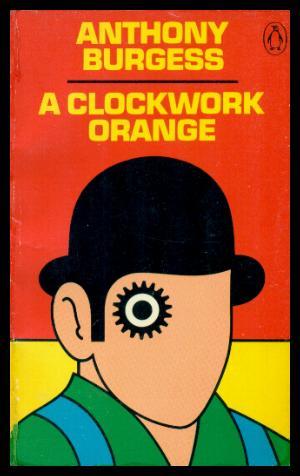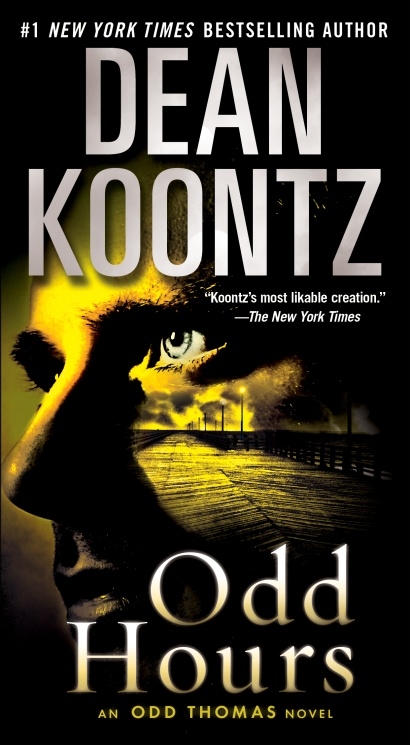 A teenage delinquent is arrested for murder. To avoid a lengthy prison sentence, he submits himself to an experimental medical cure that quashes all of his violent impulses, along with his ability to enjoy classical music: the thing that gave his life fulfillment and meaning. He emerges from prison a changed man, but also a broken one. Should the state be allowed to do this?
A teenage delinquent is arrested for murder. To avoid a lengthy prison sentence, he submits himself to an experimental medical cure that quashes all of his violent impulses, along with his ability to enjoy classical music: the thing that gave his life fulfillment and meaning. He emerges from prison a changed man, but also a broken one. Should the state be allowed to do this?
Burgess seems to disagree. But he also stacks the deck against the state by not asking an important question: “if not the Ludovico Technique, what should happen to Alex?”
What’s the alternative? Life in prison? The electric chair? Should he be allowed to resume his crime spree? Roger Ebert once said that it’s difficult to cheer for the hero when the villain is the one making sense, and a similar problem occurs here: we’re told . Jumping out of a plane at 10,000 feet only seems like a bad idea until you notice the smoke spiraling from the engines, and Burgess cheats by not considering the even worse alternatives. Much is made of Alex’s lost ability to enjoy classical music (a metaphor for his humanity), but the woman he murdered is now incapable of enjoying music of any genre or style.
A Clockwork Orange‘s theme is stated within the book itself: Alex is like an orange, once bursting with juice and sweetness, changed by the state into a piece of machinery. The natural, turned into the unnatural. But to what extent was Alex’s behavior ever natural? At the start, he and his gang drink “milk-plus” to fortify themselves for a night of carnage. The inference is that this is stimulant-laced milk. Alex chose to put a mind-altering substance into his body…just like he chose the Ludovico Technique. Why is the first an act of free choice, but the second isn’t? Beyond that, it opens the question as to whether “natural” is even a defensible word, or “free will” a tenable concept.
Oranges are a poor choice of metaphor, because they are clockwork to begin with. No wild oranges exist, and they were presumably bred from some other citrus fruit. That fruit was probably bad tasting, and perhaps inedible or toxic. Through a combination of genetic mutations, planned breeding programs, and hybridization, we have the modern orange. Many kinds, in fact! You can get a Valencia orange, which is sweet with a lot of juice. Or a blood orange, a tarter fruit with an attractive red color. None of this is natural. The orange was guided towards its present forms by mankind’s hand.
In the same way, Alex didn’t sprout from the forehead of Zeus – he was created and shaped by factors beyond his control. Alex’s “free will” is actually the genes of his mother and his father, the prenatal environment in his mother’s womb, and the society he was raised in. Some think that the increase in crime in the latter 20th century was fuelled (literally) by the presence of leaded gasoline in the soil. After gasoline became unleaded, crime rates dropped. Imagine if Alex’s sociopathy came from lead – a mistake by the government. The Ludovico Technique is an attempt to correct that mistake. Why confuse the mistake as Alex’s free will, and the correction as abhuman meddling?
As a novel, the book is very good. I wish it had only tried to be a novel. It moves quickly, except for the prison scenes in the middle part. The depravity is as nasty as it is exciting, and Burgess’s dystopian England is fleshed out just enough to seem realistic, leaving the attention on Alex (as he surely would have wanted.)
Most of Burgess’s other work are comic novels, and there’s lots of humor here: after Alex finally suffers some consequences for his actions, he writes “this is the real weepy and like tragic part of the story beginning.” That was a Good laugh. (Unfortunately, the book also contains a Bad Laugh: at the start, Alex is beating up a stewbum who suddenly launches into a melodramatic speech worthy of Hiawatha.) Burgess’s most brilliant concept here is nadsat, an argot based on Russian, schoolboy talk, and Cockney rhyming slang. It adds an alien, disaffected quality to Alex’s mind, as though we’re seeing the world through a Babelfish translation. It also might have been a tactical move on Burgess’s part. Harder to get outraged over in-out-in-out performed on a devotchka then rape performed on a woman.
Even so, the US version of the book didn’t escape a critical (and notorious) edit, the omission of the final chapter. Alex, having broken through the Ludovico Technique, nonetheless decides that ultra-violence isn’t for him. In other words, he grows up. This chapter was cut over Burgess’s objections by his US publisher, probably for marketing reasons. Readers are used to the storytelling convention of “fall, then rise, then fall”, or “rise, then fall, then rise”. The uncut version of A Clockwork Orange is more like “fall, then rise, then fall, then rise”. For decades, only the 20 chapter version was available in the US. In 1986, the full 21 chapter book was published for the first time.
The extra chapter completely transforms A Clockwork Orange, and I don’t know which version I prefer. The 21 chapter version is didactic, and feels like Burgess tying too neat a bow on the story. “Well, Alex grows up anyway, so that proves it was all for nothing.” At 20 chapters, A Clockwork Orange falls more into line with the film. And I strongly dislike the film.
Say what you will about Burgess, but he never tries to make Alex your pal. Never, ever, ever. He’s an evil kid, and you are supposed to dislike him. Stanley Kubrick almost seems to hero-worship Alex, even modifying his crimes so that they’re less awful (instead of raping a pair of ten year old girls, Film-Alex has consensual sex with two adult women). You can go over the film scene by scene, and note the shots Kubrick takes of Malcolm McDowell, making him look dashing, romantic, even darkly Messianic. You can also note the way he portrays Alex’s victims as bug-eyed goons and creeps. Burgess’s book seems to say “Alex is evil, but was it right for the state to alter his brain?” Kubrick’s film seems to say “hey, don’t harsh Alex’s flow, man.”
Films have an annoying habit of colonising the books they’re based on. Now it’s hard to read A Clockwork Orange and not see Kubrick’s milk-plus bar, or Kubrick’s Durango ’95 speeding down the highway. The Ludovico Technique is now the Kudobricko Technique. The film amplified the very parts of the story that Burgess had tried so hard to tamp down, and this may have been why he later disowned it. Once, he could have claimed ownership of A Clockwork Orange. But now, in the minds of millions, Burgess’s most famous work is…someone else’s!
On its own, the book is a great story. Very dark. Too bad Burgess also wanted it to be a gedankenexperiment, because it doesn’t have much gedank.
 Some bad books are like buildings, collapsing safely in their own footprint. Cordon off the area, wear protective gear, and you’ll escape the obliteration unscathed.
Some bad books are like buildings, collapsing safely in their own footprint. Cordon off the area, wear protective gear, and you’ll escape the obliteration unscathed.
But other bad books are like trees, falling sideways. They don’t just doom themselves, they also destroy other books that happen to be nearby.
Dean Koontz writes many bad books. If they’re standalone, I don’t have a problem, as they kill nothing but themselves. But this is the fourth book in the Odd Thomas series, and as the first Odd Thomas was very good I’m not impressed that he keeps cheapening it with afterthoughts.
The story is familiar by now. Odd can see ghosts, and he must resolve the lingering conflict that keeps them from moving on. The concept is derivative of Shyamalan’s The Sixth Sense, Stephen King’s generic “big secret in a small town” conceit, and Art Bell’s radio broadcasts, but back then, it was fun. It no longer is. If Odd Thomas was The Godfather and Forever Odd was the Godfather 3, then Odd Hours is squarely in The Godfather X: Electric Boogaloo territory. It has a terrible, meandering story, a cast of “colorful” characters with no purpose beyond chewing the scenery, and a bone-deep sense of pointlessness. Odd Thomas should resolve the lingering conflict that stops his own series from moving on. I think the author murdered it, midway through book two.
Odd now lives at a place with the alarming title of Magic Beach. He has dreams of a nuclear-red storm coming in with the tide. Some thugs try to kill him. He meets a woman who gets lots of character development until Dean Koontz literally seems to forget that she’s in the story.
Is there an intelligent dog? You bet. Does the main character use a gun and is consumed with guilt and regret afterwards? Wow, you’ve read Dean Koontz before too!
The plot is insane and nonsensical. It doesn’t have logic, it has a series of events, all occurring without reference to one another.
The sheriff of Magic Beach is plotting a dastardly conspiracy – I don’t buy that a guy running a small-town cop shop would be capable of buying nuclear warheads, but your mileage may vary – and Odd Hours soon enters a familiar rhythm of the hero running away from bad guys and solving problems with author’s convenience. In this case, it doesn’t take too much convenience, because the (six or seven) villains are all bumbling idiots who could be thwarted by a childproof seal. Dean Koontz can’t figure out how to resolve the story, so he has them all shoot each other. Then the book ends.
Dean Koontz is still a good prose stylist, but he’s a heavy-handed good prose stylist. Every sentence aspires to be a lyrical utterance of lapidary beauty. Every page is crammed with wordplay, literary allusions, “clever” character names, and other pukesome shit. Dean, stop trying so hard. No, seriously, stop trying so hard. You are fish and chips. I don’t need fish and chips served on a fine Kensington tea set.
He also does that annoying thing where he writes something clever and then nudges you, to make sure you got it. Early in the book, a character is described as having “hair like wool-of-bat and tongue like fillet of fenny snake”. I’d hoped he’d leave it alone, but of course he has someone point out (for the reader’s benefit) that this is a Shakespeare reference. Thanks. Literary allusions should always be bashed through the reader’s skull with a Louisville slugger.
Koontz’s recycling is now obvious, and impossible to ignore. All the cliches make an appearance. The frequent references to classic Hollywood cinema. The angry old man rants about popular culture and modern music (you can immediately detect a bad egg in Dean Koontz’s novels, because they enjoy gangsta rap or heavy metal). At one point, he writes the character of Dick Halloran from The Shining into the story, except instead of a black man it’s a white woman and instead of “the shine” it’s “the twinge”. I hoped that he’d also borrow the axe murder scene from Kubrick’s film version, but no luck.
 In 1660, an English functionary called Samuel Pepys began keeping a diary. This diary would eventually run for a million words, covering ten years of his life (and England’s history). He documents some of the most important events in history, along with things like his masturbation in church, his affairs with a variety of household maids, and the first performance of Romeo and Juliet (“it is a play of itself the worst that ever I heard in my life”). The diary has no longer just describes history, it has become history. It’s like the Great Pyramid: built to memorialize a great man and great times, and now great for its own sake. People will know of the Great Pyramid long after they have forgotten Khnum-Khufu.
In 1660, an English functionary called Samuel Pepys began keeping a diary. This diary would eventually run for a million words, covering ten years of his life (and England’s history). He documents some of the most important events in history, along with things like his masturbation in church, his affairs with a variety of household maids, and the first performance of Romeo and Juliet (“it is a play of itself the worst that ever I heard in my life”). The diary has no longer just describes history, it has become history. It’s like the Great Pyramid: built to memorialize a great man and great times, and now great for its own sake. People will know of the Great Pyramid long after they have forgotten Khnum-Khufu.
A lot of the diary is spent documenting minutia of Pepys’s day to day life. The diary begins not long after the death of Oliver Cromwell, and the rearrangement of the state has landed Pepys with a new job (he notes at one point that when England suffers, he prospers). Soon we learn more about his personal life, which includes plays, wine, and endless marital strife (Elisabeth Pepys was often unhappy with him. Given his habit of seducing their housemaids, one feels empathy). Some of this is eternally fascinating, and some would have been mundane at the time but now provides a valuable glimpse of how an upper class Englishman lived his life in the days of the Rump.
Almost everything we know about the past is drawn from a stacked deck – conquerors writing of their greatest battles, artists painting their subjects in the full flower of youth and health. Time has an editorial process that winnows out mundane events, but you need the mundanity. A historical document without trivia is like an English sentence without conjunctions or articles – informative, but jarring, and you spend a lot of effort reconstructing the missing words. Pepys’s diary, even in its most boring pages, provides one of the clearest windows we have into Renaissance England. Most of the others are made of stained glass.
The diary’s most harrowing pages are the eyewitness descriptions of the Great Fire. Pepys’s prose is evocative and almost Blakean (“the poor pigeons, I perceive, were loth to leave their houses, but hovered about the windows and balconys till they were, some of them burned, their wings, and fell down”), which is appropriate, because the fire was apocalyptic, a bowl of wrath spilled before the appointed time. And it was very typical of Pepys to notice the poor pigeons. Earlier parts of the diary are hard to read (particularly Pepys describing his careful renovations of his home) because you know what will happen soon.
But the diary leaves mysteries as well as answers. For example, was this really a window into Pepys’s private, unfiltered thoughts? Or did he intend for it to be read by the public?
We don’t really know. The diary was written in a nearly impenetrable shorthand, and was deciphered in the 19th century by a St John’s College undergraduate (he would later learn that his effort was needless, and the key to the cipher was in the college’s very library). Modern editions of the diary are very clean and readable, once the reader trains his brain out of imposing anachronisms on the text (“sack” means wine, and when Pepys refers to someone as “a black man” he means that their hair is black, not their skin.)
A lot of this is embarassing and frank. I suspect Pepys knew that he might be playing to crowd. The prose seems not just precise but laboured – the work of a man not just trying to get words down, but gets not getting the ideas down, but getting the ideas down right. But he certainly composed the diary in a variety of different moods, and there’s probably portions he would have edited or excised, had he reviewed it with a cooler head.
A politician (who was not Pepys) said that writing a diary lets you experience life three times. Once, in the living. Twice, in the writing. Thrice, in the reading afterwards. But sometimes diaries reach the outside world, which means the experience was lived thousands or millions of times, or a number that might approach infinity (depending on how long such books are read). Khnum-Khufu obtained immortality, but not the sort he was hoping for. Pepys captured that immortality even better, in written words of his own design. “Dear diary” usually precedes boredom and narcissism. But here, a diary becomes genuinely great literature.
 A teenage delinquent is arrested for murder. To avoid a lengthy prison sentence, he submits himself to an experimental medical cure that quashes all of his violent impulses, along with his ability to enjoy classical music: the thing that gave his life fulfillment and meaning. He emerges from prison a changed man, but also a broken one. Should the state be allowed to do this?
A teenage delinquent is arrested for murder. To avoid a lengthy prison sentence, he submits himself to an experimental medical cure that quashes all of his violent impulses, along with his ability to enjoy classical music: the thing that gave his life fulfillment and meaning. He emerges from prison a changed man, but also a broken one. Should the state be allowed to do this?

